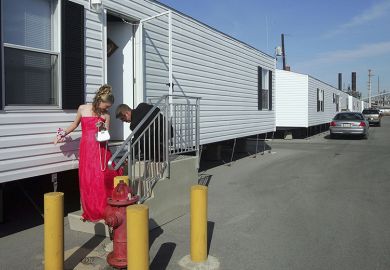The statistics, released by the Department for Education today, show that 56 per cent of London pupils went to university the year after taking an A level or equivalent “Level 3” qualification.
However, in south-west England the proportion of such children going to university in 2010-11 was just 40 per cent, in the South East outside London the figure was 43 per cent and in the east of England it was 47 per cent.
Regions with large urban areas also tended to have a higher proportion than the England-wide average of 48 per cent: in the North West 53 per cent of Level 3 pupils in 2009-10 went to university the following year and in the West Midlands the figure was 49 per cent.
The figures are also broken down by the proportion going on to study at Oxbridge, Russell Group universities and the “top third” of institutions in terms of selectivity, calculated on mean Ucas entry score.
Although the proportions going to Oxbridge and the Russell Group in each region tend to be close to the England averages of 1 per cent and 8 per cent respectively, the figures in the “top third” category again vary.
In London, 17 per cent went on to the “top third” of universities while in the North East the figure was 11 per cent (although this region did have a high percentage going to university overall at 51 per cent).
Meanwhile, in Yorkshire and the Humber and the South West, 12 per cent went on to the most selective third of universities.
The figures are also published by local authority giving a detailed picture of the districts with the most children going on to university. Outer London boroughs have among the highest proportions with Redbridge having a figure of 66 per cent going on to study at university.
Register to continue
Why register?
- Registration is free and only takes a moment
- Once registered, you can read 3 articles a month
- Sign up for our newsletter
Subscribe
Or subscribe for unlimited access to:
- Unlimited access to news, views, insights & reviews
- Digital editions
- Digital access to THE’s university and college rankings analysis
Already registered or a current subscriber? Login




